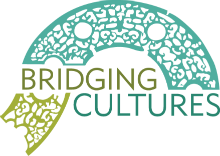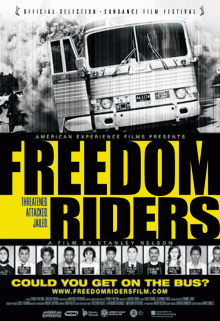Created Equal Programming Series: Freedom Riders, Scholar Series
April 16 2014 | 6:00pm to April 17 2014 | 7:55pm
Scholar:
- John W. Hardy, former Freedom Rider
Using excerpts from the film, "Freedom Riders," John W. Hardy will provide historical context and use his own experience as a Freedom Rider and SNCC field representative to lead a discussion about the Freedom Rides of 1961 and the reverberations of this impactful Civil Rights activity. Mr. Hardy's Civil Rights involvement started in Nashville, TN,and from 1958 until 1963 included lunch counter sit-ins, protest marches, and boycotts. Heserved as a field representative on the freedom ride coordinating committee and as an organizer and trainer in the SNCC Voter Registration Schools in Mississippi. He also worked in SNCC's Atlanta, GA head-quarters office with James Forman and Julian Bond. In August of 1961, John went to McComb, Mississippi to join Bob Moses, Reginald Robin-son and Marion Berry to open SNCC Voter Registration Training Schools. As a Voter Registration trainer in Tylertown, MS while assisting local black citizens to register to vote, he was pistol whipped by the County Registrar John Q. Wood and ordered to "leave his office and the state of Mississippi." He was later arrested by local Sheriff Edd Craft and charged with resisting arrest, inciting a riot and disorderly conduct. Because of his beating and a later drive-by shooting at the home where he was staying, John was smuggled out of Mississippi and sent to work in the SNCC Atlanta, GA headquarters office. These and related violent acts resulted in the U. S. Department of Justice case United States of America, Appellant, v. John Q. Woods et al., "on the theory that the continued prosecution of John Hardy was designed to, and would, intimidate the qualified Negroes of Walthall County, and the state of Mississippi from attempting to register to vote." He now shares his story with others as a reminder to never take freedom for granted.
Attracting a diverse group of volunteers—black and white, young and old, male and female, secular and religious, northern and southern—the Freedom Rides of 1961 took the civil rights struggle out of the courtroom and onto the streets of the Jim Crow South.
Freedom Riders tells the terrifying, moving, and suspenseful story of a time when white and black volunteers riding a bus into the Deep South risked being jailed, beaten, or killed, as white local and state authorities ignored or encouraged violent attacks. The film includes previously unseen amateur 8mm footage of the burning bus on which some Freedom Riders were temporarily trapped, taken by a local 12 year-old and held as evidence since 1961 by the FBI.
To mark the 150th anniversary of the Emancipation Proclamation, the National Endowment for the Humanities (NEH) has developed a special initiative, Created Equal: America’s Civil Rights Struggle. As part of the Endowment’s Bridging Cultures initiative, Created Equal uses the power of documentary films to spark public conversations about the changing meanings of freedom and equality in America.
Four outstanding documentary films, spanning the period from the 1830s to the 1960s, are the centerpiece for this project. Each of these films was supported by the NEH, and each tells the remarkable stories of individuals who challenged the social and legal status quo of deeply rooted institutions, from slavery to segregation.
Created Equal encourages communities to revisit the history of civil rights in America and to reflect on the ideals of freedom and equality that have helped bridge deep racial and cultural divides.
The Detroit Historical Society represents one of 473 communities across the nation who received the Created Equal film set, accompanied by resources to guide public discussion programs. The Society will hold screenings and discussions of each film beginning in February 2014. We will show the films in their entirety each month as our Film Series presentations. Then, for our monthly Scholar Series presentations, we will show excerpts of each film, followed by a facilitated group discussion led by a humanities scholar.





